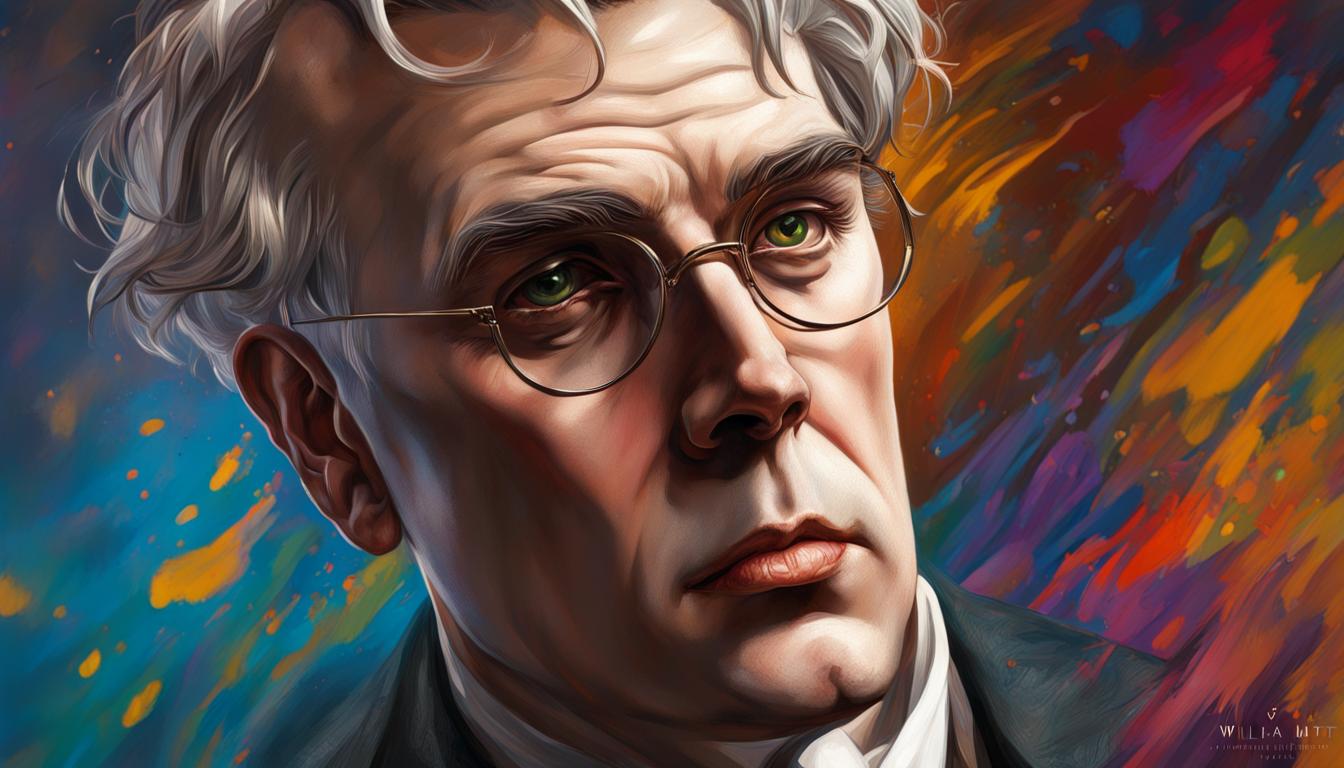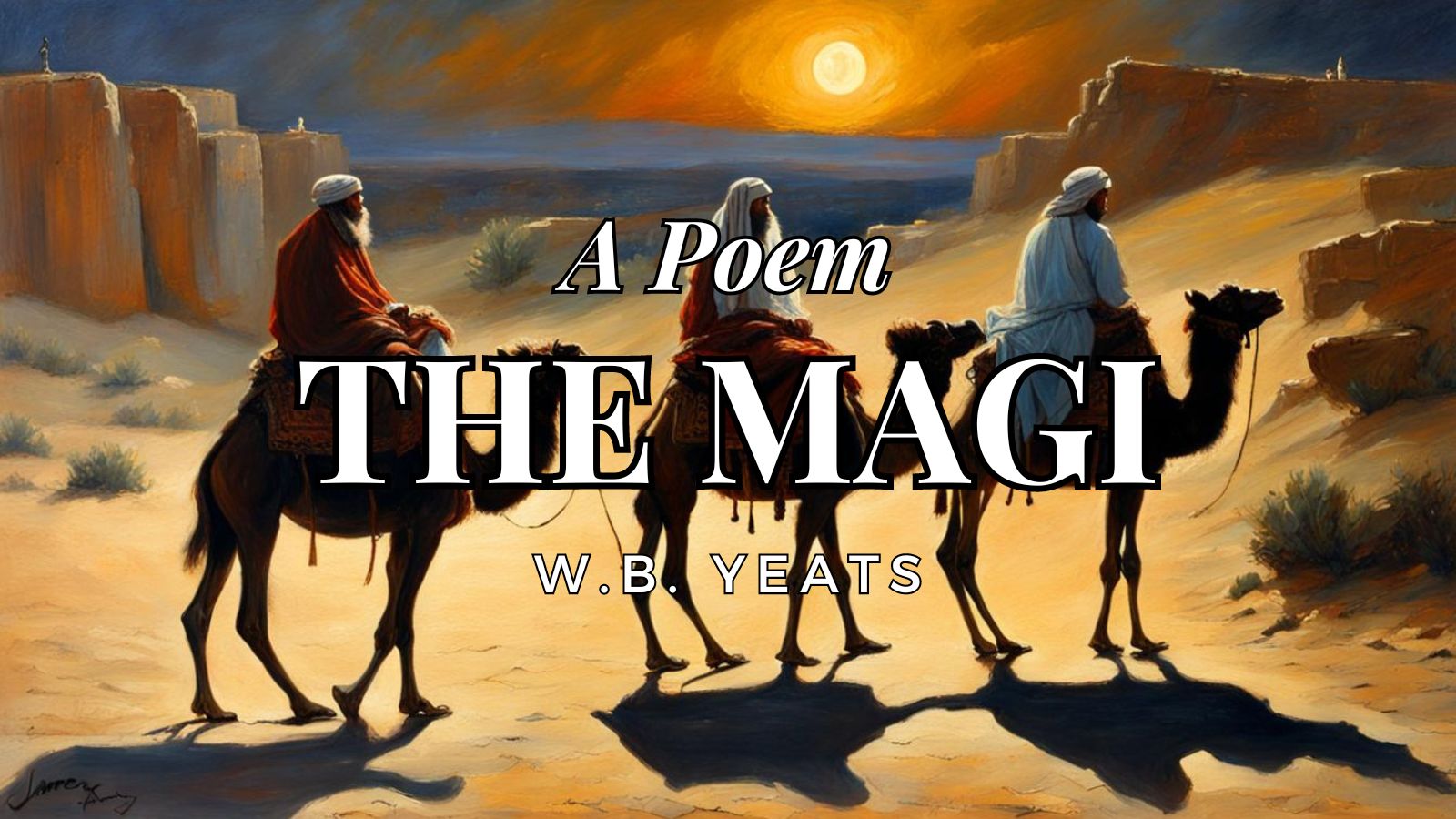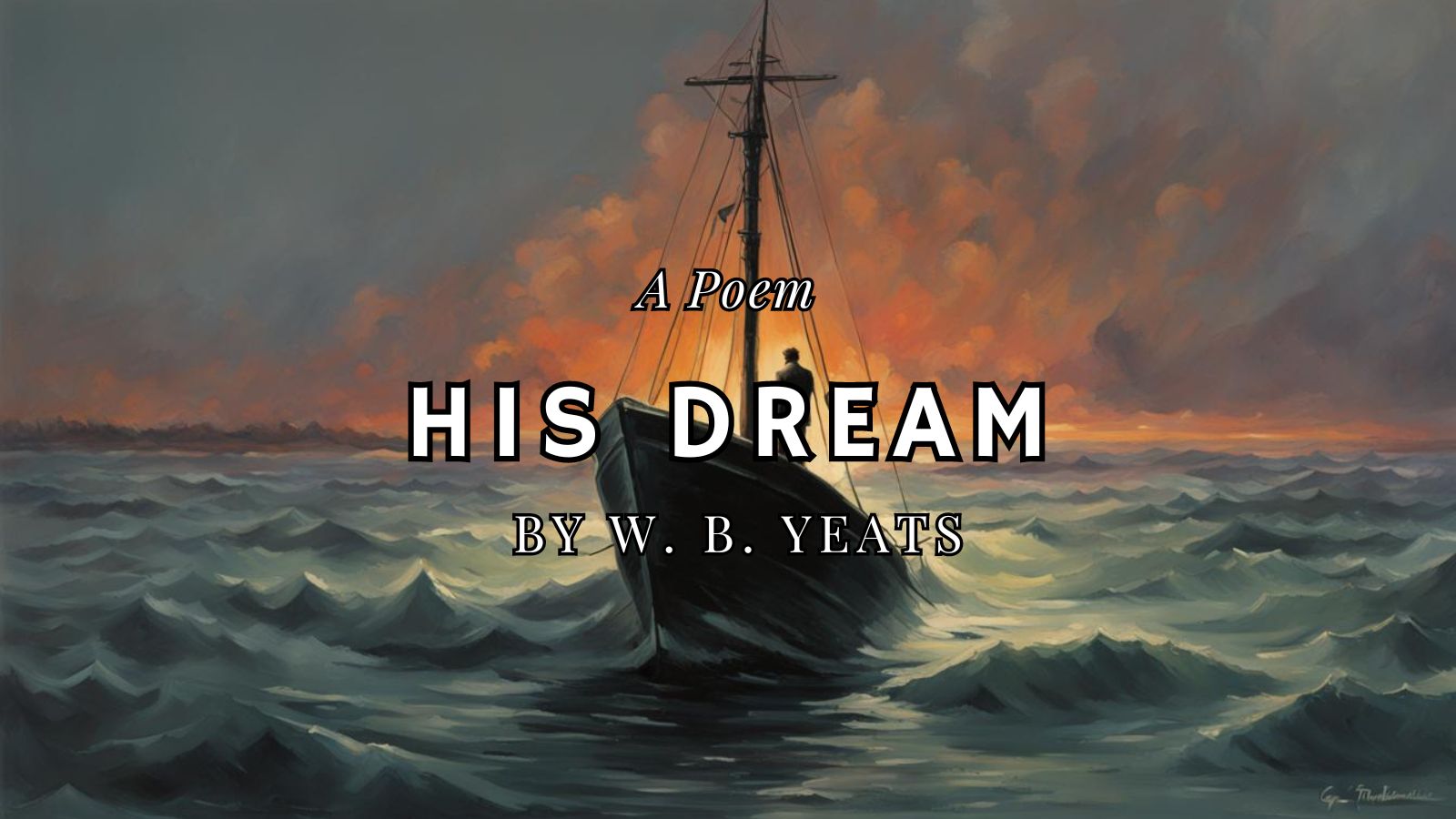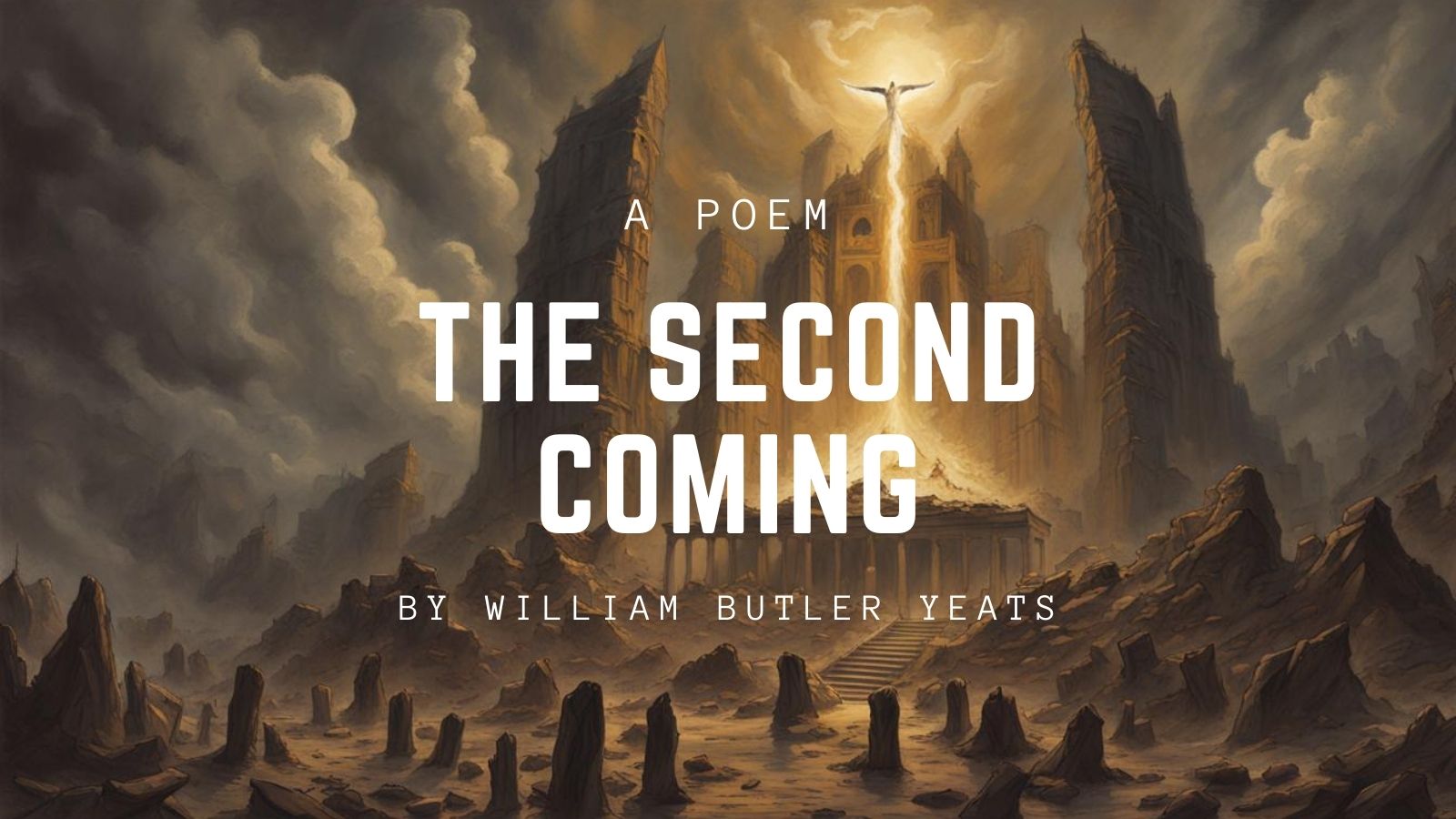The Magi by William Butler Yeats Now as at all times I can see in the mind’s eye, In their stiff, painted clothes, the pale unsatisfied ones Appear and disappear in the blue depth of the sky With all their ancient faces like rain-beaten stones, And all their helms of silver hovering side by side,…
Yeats, W. B.

William Butler Yeats (1865-1939) ranks among the foremost poets in the English language of the 20th century. An Irish literary giant, Yeats helped catalyze the Irish Literary Revival through his poetry and plays, which drew extensively from Irish folklore, landscape, and politics. He received the 1923 Nobel Prize in Literature for his career of “inspired poetry, which in a highly artistic form gives expression to the spirit of a whole nation.”
Yeats was born in Dublin to an Anglo-Irish family but spent much of his youth between County Sligo and London, environments which cultivated his interest in mysticism and Irish nationalism from an early age. After training to become a painter, Yeats turned seriously towards poetry in his twenties while engaged in an occult society in London. He self-published his first poems in the 1880s before earning wider acclaim with collections such as “The Wanderings of Oisin” inspired by Celtic myths.
Alongside Lady Gregory, Yeats was a leading figure of the Irish Literary Revival that sought to promote native Irish culture through art. As a playwright, Yeats co-founded the Abbey Theatre in Dublin as a home for Irish drama productions, its name inspired by Yeats’ pub haunt the Abbey Tavern. Over a long career, Yeats cemented himself as Ireland’s most revered writer, renowned for welding personal heartache and unrequited love with Irish political angst and esoteric spirituality.
Yeats lived through immense political change in Ireland, from Charles Stuart Parnell’s home rule efforts to the Easter Rising of 1916 and ensuing Irish War of Independence. These events informed major poems like “Easter, 1916.” Generally skeptical of political dogma, Yeats nonetheless participated in Irish senators’ oath of allegiance in 1922 after independence. The same year, amidst the Irish Civil War, he published “The Tower” and some of his most renowned works including “Leda and the Swan” and “Sailing to Byzantium” – luminous, intricate poems enriched by occult and historical influences. Yeats continued writing until his death in 1939 in France, leaving an expansive poetic canon still widely influential in modern literature
Poem:
His Dream by W. B. Yeats
His Dream by W. B. Yeats I swayed upon the gaudy stern The butt end of a steering oar, And everywhere that I could turn Men ran upon the shore. And though I would have hushed the crowd There was no mother’s son but said, What is the figure in a shroud Upon a gaudy…
The Second Coming by W. B. Yeats
The Second Coming by W. B. Yeats Turning and turning in the widening gyre The falcon cannot hear the falconer; Things fall apart; the centre cannot hold; Mere anarchy is loosed upon the world, The blood-dimmed tide is loosed, and everywhere The ceremony of innocence is drowned; The best lack all conviction, while the worst…
A Drinking Song by W.B. Yests
A Drinking Song by W.B. Yests Wine comes in at the mouth And love comes in at the eye; That’s all we shall know for truth Before we grow old and die. I lift the glass to my mouth, I look at you, and I sigh.
Friends by W. B. Yeats
Friends by W. B. Yeats Now must I these three praise Three women that have wrought What joy is in my days; One that no passing thought, Nor those unpassing cares, No, not in these fifteen Many times troubled years, Could ever come between Heart and delighted heart; And one because her hand Had…
The Moods by W. B. Yeats
The Moods by W. B. Yeats Time drops in decay, Like a candle burnt out, And the mountains and woods Have their day, have their day; What one in the rout Of the fire-born moods, Has fallen away?
THAT THE NIGHT COME by W. B. Yeats
THAT THE NIGHT COME by W. B. Yeats She lived in storm and strife. Her soul had such desire For what proud death may bring That it could not endure The common good of life, But lived as ?twere a king That packed his marriage day With banneret and pennon, Trumpet and kettledrum, And the…
THE YOUNG MAN’S SONG W. B. Yeats
THE YOUNG MAN’S SONG I whispered, “I am too young,” And then, “I am old enough”; Wherefore I threw a penny To find out if I might love. “Go and love, go and love, young man, If the lady be young and fair,” Ah, penny, brown penny, brown penny, I am looped in the loops…


